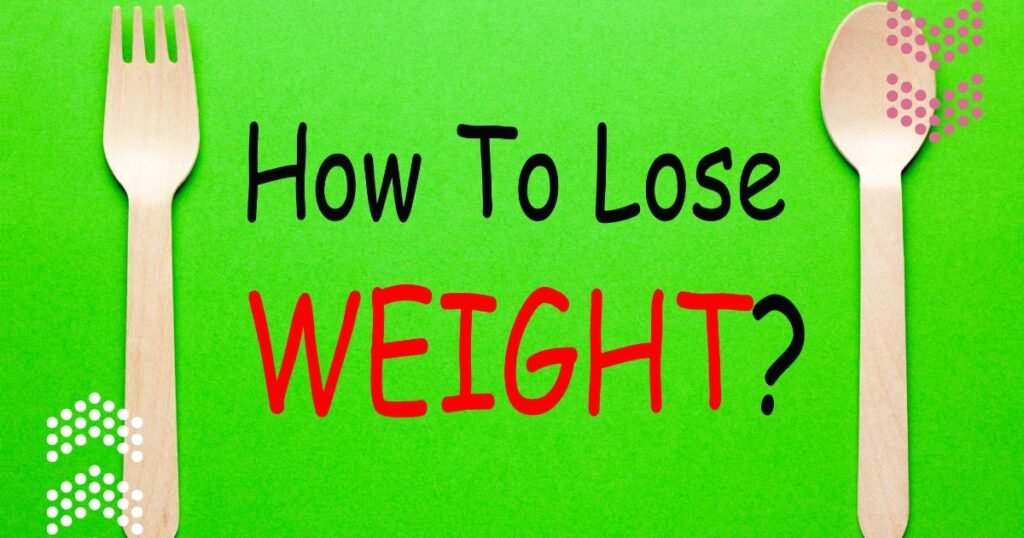The Thermic Effect of Food (TEF) in Women: How Certain Foods Burn More Calories During Digestion
The Thermic Effect of Food (TEF) is a vital component of energy expenditure, especially when it comes to weight management. TEF represents the energy your body needs to digest, absorb, and process the nutrients from food. While TEF impacts everyone, it can have a more pronounced effect on women, given their unique metabolic challenges.
Understanding how TEF works is essential for women looking to optimize their diets for weight loss. Knowing which foods increase calorie burn during digestion and incorporating them into your daily routine can help you manage weight more effectively. This article explores the science behind TEF and offers actionable tips for women to maximize its benefits.
Understanding the Thermic Effect of Food (TEF)
What is TEF?
TEF refers to the energy your body expends during digestion, absorption, and the transportation of nutrients. When you consume food, your body works to break it down, a process that requires calories. This phenomenon is known as the Thermic Effect of Food.
The TEF varies depending on the macronutrient consumed—proteins, fats, and carbohydrates. Protein has the highest thermic effect, meaning that your body burns more calories digesting it compared to fats and carbohydrates. This is crucial for women trying to lose weight, as eating more foods that have a high TEF can naturally increase calorie expenditure.
TEF and Women’s Metabolism
Women experience several unique metabolic shifts throughout their lives due to hormonal changes. These fluctuations—whether during menstruation, pregnancy, or menopause—can significantly affect how the body processes food and burns calories. Because TEF is tied to metabolism, women need to pay special attention to how different life stages impact their TEF and overall energy expenditure.
For example, during the menstrual cycle, metabolic rates may increase slightly, meaning that women might burn more calories, especially if they consume foods with a higher thermic effect. Similarly, during menopause, when metabolism tends to slow down, increasing the intake of high-TEF foods could counteract some of the slowdown, helping to manage weight more effectively.
How Macronutrients Impact TEF in Women
Protein and TEF
Protein is the most efficient macronutrient in increasing TEF. Studies have shown that approximately 15-30% of calories consumed from protein are burned during digestion. This makes protein-rich foods highly effective in promoting weight loss, especially for women.
High-protein diets are particularly beneficial because they not only increase calorie burn but also promote satiety. This means that by consuming more protein, women are likely to feel fuller for longer, which reduces the likelihood of overeating and makes it easier to maintain a calorie deficit.
Furthermore, protein plays a key role in muscle preservation. Women who are focused on building or maintaining muscle mass will benefit from a high-protein diet. Muscle is metabolically active, meaning it burns more calories at rest than fat. Therefore, consuming protein-rich foods not only increases TEF but also supports muscle growth, contributing to a faster metabolism.
Carbohydrates and TEF
Carbohydrates have a moderate thermic effect, burning about 5-10% of the calories consumed during digestion. However, not all carbohydrates are created equal. Complex carbohydrates, such as whole grains, vegetables, and legumes, have a higher thermic effect than simple carbohydrates like refined sugars and white bread.
For women looking to boost their TEF, it’s important to focus on fibrous, complex carbohydrates. These foods take longer to digest, which means your body burns more calories processing them. Additionally, complex carbs tend to be more nutrient-dense, offering long-lasting energy that supports weight loss without causing spikes in blood sugar levels.
Fats and TEF
Fats have the lowest thermic effect, with only 0-3% of calories burned during digestion. While fats don’t contribute significantly to TEF, they are still an essential part of a healthy diet, particularly for women. Healthy fats support hormone production, improve brain function, and contribute to overall well-being.
Women should include healthy fats, such as those found in avocados, nuts, seeds, and olive oil, in their diet. These fats may not directly boost TEF, but they are crucial for maintaining a healthy metabolism and hormone balance, which can indirectly influence weight management.
Types of Foods That Boost TEF in Women
High-Protein Foods for TEF
High-protein foods like lean meats, poultry, fish, eggs, tofu, and legumes are excellent for increasing TEF. Since protein has the highest thermic effect, incorporating these foods into your diet can lead to more calories burned during digestion.
For women, protein is especially important for muscle preservation and fat loss. Women naturally have less muscle mass than men, and maintaining or increasing muscle is vital for keeping metabolism high. By consuming more protein, women can preserve their muscle while burning more calories at rest.
Fibrous Carbohydrates for TEF
Fibrous vegetables, whole grains, and legumes are also great for boosting TEF. The fiber in these foods makes them harder to digest, causing your body to work harder and burn more calories in the process.
Fibrous carbohydrates are also beneficial for digestion and maintaining stable blood sugar levels, which can help control cravings and prevent overeating. These foods not only boost TEF but also contribute to overall digestive health.
Spices and Metabolism Boosters
Certain spices, such as cayenne pepper, ginger, and turmeric, can temporarily increase metabolism, boosting TEF. These spices contain compounds that stimulate digestion and enhance calorie burn during meals.
For example, cayenne pepper contains capsaicin, which has been shown to increase calorie burn and fat oxidation. Incorporating spices like these into your meals can give your metabolism a temporary boost, helping to burn extra calories.
How to Maximize TEF for Weight Loss in Women
Eating Small, Frequent Meals
Eating smaller, more frequent meals can keep your metabolism active throughout the day, optimizing TEF. When you eat several smaller meals, your body stays in a state of digestion for longer periods, resulting in a continuous calorie burn.
For women, this approach can be particularly beneficial for preventing metabolic slowdowns that often occur during long periods without food. By maintaining consistent energy intake, you can support weight loss while avoiding energy crashes that lead to overeating.
Meal Composition for Maximum TEF
The composition of your meals plays a key role in maximizing TEF. Meals that combine protein, fiber, and thermogenic spices create a powerful combination that enhances digestion and calorie burn.
For example, a meal of grilled chicken, quinoa, and steamed broccoli sprinkled with cayenne pepper not only provides the protein and fiber needed to boost TEF but also includes metabolism-boosting spices for an extra calorie burn.
Timing of Meals
The timing of your meals can also impact TEF. Aligning your meals with periods of activity can further enhance calorie burn. For example, consuming a protein-rich meal after a workout can help optimize muscle recovery and boost TEF.
Additionally, having a balanced breakfast can kickstart your metabolism in the morning, setting the tone for more efficient calorie burn throughout the day.
Hydration and Its Impact on TEF
Staying hydrated is essential for optimal digestion and metabolism. Drinking water before and after meals can help break down food more efficiently, indirectly boosting TEF. Proper hydration ensures that your body can absorb and process nutrients more effectively, contributing to weight loss.
In fact, drinking cold water has been shown to increase TEF slightly as your body burns calories to warm the water to body temperature. This simple habit can be an easy way to enhance your daily calorie burn.
Challenges Women Face with TEF and Weight Loss
Impact of Hormones on TEF
Hormonal changes, such as those experienced during menstruation, pregnancy, and menopause, can impact TEF. These changes affect how efficiently your body processes food and burns calories.
For example, during the luteal phase of the menstrual cycle, metabolism may slightly increase, leading to a higher TEF. On the other hand, menopause often brings a metabolic slowdown, making it harder to lose weight. By adjusting your diet to include more high-TEF foods during these phases, you can better manage your metabolism.
Age and TEF
As women age, their metabolism naturally slows down, which can reduce TEF. After the age of 35, women may find it harder to lose weight due to a decline in muscle mass and hormone fluctuations.
To combat this, women should focus on maintaining muscle mass through strength training and eating protein-rich foods. By preserving muscle, you can keep your metabolism high and continue to benefit from a strong TEF, even as you age.
Stress, Sleep, and TEF
Chronic stress and poor sleep can negatively affect TEF and overall metabolism. Stress triggers the release of cortisol, a hormone that slows metabolism and encourages fat storage, particularly in the abdominal area.
In addition, lack of sleep can disrupt metabolic processes, leading to decreased TEF. Prioritizing stress management and quality sleep is crucial for women looking to optimize TEF and achieve sustainable weight loss.
TEF, Weight Maintenance, and Long-Term Health
Sustainable Eating for Long-Term TEF Benefits
While TEF can help with weight loss, it’s important to maintain a sustainable diet for long-term benefits. High-TEF foods such as proteins, fibrous carbohydrates, and metabolism-boosting spices should be incorporated into a balanced diet for lasting results.
For women, the key to maintaining a high TEF lies in consistency. Eating a diet rich in whole, nutrient-dense foods that support digestion and metabolism is crucial for long-term health and weight maintenance.
The Role of TEF in Overall Health for Women
TEF does more than just aid in weight loss. It supports digestive health and ensures that your body absorbs nutrients efficiently. By focusing on a diet that maximizes TEF, women can improve their metabolism, boost their energy levels, and promote overall well-being.
Moreover, consuming foods with a high thermic effect helps maintain muscle mass, balance hormones, and enhance mental clarity, all of which contribute to a healthier lifestyle.
Conclusion
Recap of TEF’s Role in Women’s Weight Loss
Understanding the Thermic Effect of Food is essential for women who want to optimize their weight loss efforts. By focusing on foods that naturally burn more calories during digestion, such as protein and fiber-rich foods, women can increase their metabolism and achieve sustainable weight loss.
Actionable Tips
- Incorporate high-protein foods like chicken, tofu, and legumes into your meals.
- Opt for fibrous carbohydrates such as whole grains and vegetables to boost calorie burn.
- Add metabolism-boosting spices like cayenne and ginger to your dishes.
- Drink plenty of water before and after meals to support digestion.
- Focus on muscle-preserving exercises to maintain a strong metabolism as you age.
Final Thoughts
When it comes to weight loss, it’s not just about the number of calories you eat—it’s about the quality of those calories. By focusing on foods that increase TEF, women can naturally enhance their calorie burn and support long-term weight management.
To learn more about how energy balance plays a key role in weight loss, visit our Energy Balance Explained for Women article. For more tips and resources, explore our website and discover recipes, tools, and products designed to help women achieve their fitness goals.
Weight loss and women can be challenging, but understanding the role of TEF can make the journey easier. You can also find more resources on diet and weight loss at trusted sources to expand your knowledge on healthy weight management.


